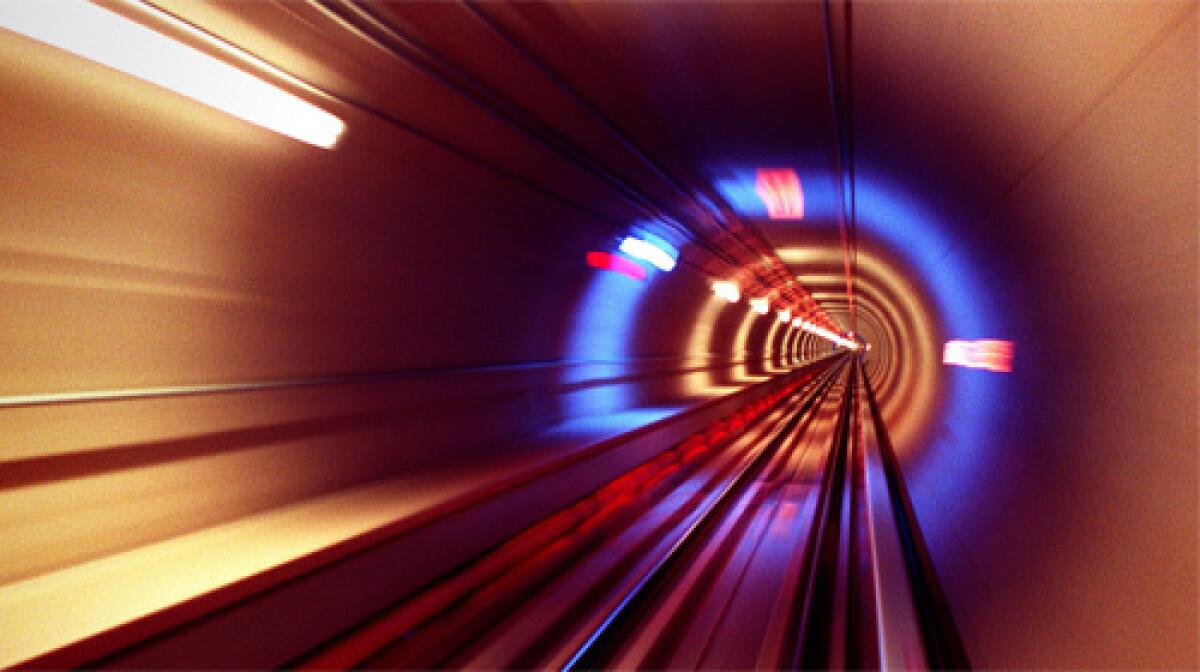Public to weigh in on Westside subway routes

- Share via
Local transportation officials have come up with a list of about a dozen potential subway routes on the Westside, with most of the corridors following either Wilshire Boulevard or Santa Monica Boulevard -- or both.
All of the routes, along with other mass transit options for the congested Westside, will be discussed at a series of public meetings that begin tonight. Officials with the Metropolitan Transportation Authority will study the feasibility of the routes before releasing their preference this spring.
The subway project, estimated to cost $5 billion to $7 billion, has no funding and has not undergone a required environmental review. Nor has a new subway been approved by the MTA board, which consists mostly of elected officials and their appointees.
The route proposals are part of an ongoing “alternatives study” to determine what kind of mass transit would best serve the Westside. The MTA’s proposed routes were based on public comment received in recent months.
The many different routes are expected to spur discussion. Los Angeles Mayor Antonio Villaraigosa, for example, has touted a line that follows Wilshire through Beverly Hills, before veering south to Century City. The line would swing back north to rejoin Wilshire near UCLA in Westwood.
But some West Hollywood officials and residents have been pushing for a line down Santa Monica Boulevard, which has been spruced up in recent years and is lined with many popular shops, restaurants and bars.
MTA maps show several scenarios for the so-called “subway to the sea.” It could leave the existing subway line in Hollywood and travel under Santa Monica Boulevard before turning north to Wilshire. Or it could travel west to Beverly Hills, where it would join a second subway that follows Wilshire.
“We thought a lot of people would choose” one route or the other, said Jody Litvak, the MTA spokeswoman for the Westside transit study. “But a lot of people said they’re both good and do them both.”
Litvak said there was an obvious obstacle to doing both: lack of money.
Transit advocates are pushing local elected officials to ask voters in November to approve some way to pay for new transportation projects -- most likely a sales tax or bond measure. Villaraigosa and others have so far refused to commit.
As part of their study, MTA officials also are obligated to review other types of mass transit, including improving bus service -- perhaps with bus-only lanes -- or building an elevated rail or a monorail.
The vast majority of people who attended earlier MTA meetings said they support a subway, and MTA officials said there were problems with the other approaches. People in “the Wilshire corridor have historically resisted anything at ground level or above,” said David Mieger, the Westside project manager with the MTA.
Officials also said an elevated line would have to follow the street grid, whereas an underground line could deviate from the grid to serve employment hot spots such as Century City and UCLA.
Maps of the potential routes are expected to be posted soon on the MTA’s website at www.metro.net.
More to Read
Sign up for Essential California
The most important California stories and recommendations in your inbox every morning.
You may occasionally receive promotional content from the Los Angeles Times.










